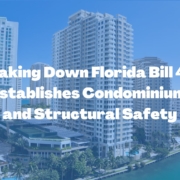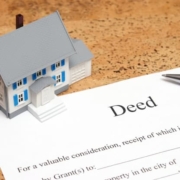Homeowners or condominium owners, as members of a Homeowners Association or a Condominium Owners Association, generally referred to as an HOA or a COA; do have the right to request and review the “official records” of the Association. But what can and can’t owners request? What are the “official records of the Association?”
First, let’s look at what “official records” means. Pursuant to Florida Statute 720.303(4), (the statute governing HOAs):
“OFFICIAL RECORDS.—The association shall maintain each of the following items, when applicable, which constitute the official records of the association:
(a) Copies of any plans, specifications, permits, and warranties related to improvements constructed on the common areas or other property that the association is obligated to maintain, repair, or replace.
(b) A copy of the bylaws of the association and of each amendment to the bylaws.
(c) A copy of the articles of incorporation of the association and of each amendment thereto.
(d) A copy of the declaration of covenants and a copy of each amendment thereto.
(e) A copy of the current rules of the homeowners’ association.
(f) The minutes of all meetings of the board of directors and of the members, which minutes must be retained for at least 7 years.
(g) A current roster of all members and their mailing addresses and parcel identifications. The association shall also maintain the electronic mailing addresses and the numbers designated by members for receiving notice sent by electronic transmission of those members consenting to receive notice by electronic transmission. The electronic mailing addresses and numbers provided by unit owners to receive notice by electronic transmission shall be removed from association records when consent to receive notice by electronic transmission is revoked. However, the association is not liable for an erroneous disclosure of the electronic mail address or the number for receiving electronic transmission of notices.
(h) All of the association’s insurance policies or a copy thereof, which policies must be retained for at least 7 years.
(i) A current copy of all contracts to which the association is a party, including, without limitation, any management agreement, lease, or other contract under which the association has any obligation or responsibility. Bids received by the association for work to be performed must also be considered official records and must be kept for a period of 1 year.
(j) The financial and accounting records of the association, kept according to good accounting practices. All financial and accounting records must be maintained for a period of at least 7 years. The financial and accounting records must include:
1. Accurate, itemized, and detailed records of all receipts and expenditures.
2. A current account and a periodic statement of the account for each member, designating the name and current address of each member who is obligated to pay assessments, the due date and amount of each assessment or other charge against the member, the date and amount of each payment on the account, and the balance due.
3. All tax returns, financial statements, and financial reports of the association.
4. Any other records that identify, measure, record, or communicate financial information.
(k) A copy of the disclosure summary described in s. 720.401(1).
(l) Ballots, sign-in sheets, voting proxies, and all other papers and electronic records relating to voting by parcel owners, which must be maintained for at least 1 year after the date of the election, vote, or meeting.
(m) All affirmative acknowledgments made pursuant to s. 720.3085(3)(c)3.
(n) All other written records of the association not specifically included in this subsection which are related to the operation of the association.”
The above would constitute all of the “official records” of an HOA. Regarding the “official records” of a COA, pursuant to Florida Statute 718.111(12):
“OFFICIAL RECORDS.—
(a) From the inception of the association, the association shall maintain each of the following items, if applicable, which constitutes the official records of the association:
1. A copy of the plans, permits, warranties, and other items provided by the developer under s. 718.301(4).
2. A photocopy of the recorded declaration of condominium of each condominium operated by the association and each amendment to each declaration.
3. A photocopy of the recorded bylaws of the association and each amendment to the bylaws.
4. A certified copy of the articles of incorporation of the association, or other documents creating the association, and each amendment thereto.
5. A copy of the current rules of the association.
6. A book or books that contain the minutes of all meetings of the association, the board of administration, and the unit owners.
7. A current roster of all unit owners and their mailing addresses, unit identifications, voting certifications, and, if known, telephone numbers. The association shall also maintain the e-mail addresses and facsimile numbers of unit owners consenting to receive notice by electronic transmission. The e-mail addresses and facsimile numbers are not accessible to unit owners if consent to receive notice by electronic transmission is not provided in accordance with sub-subparagraph (c)3.e. However, the association is not liable for an inadvertent disclosure of the e-mail address or facsimile number for receiving electronic transmission of notices.
8. All current insurance policies of the association and condominiums operated by the association.
9. A current copy of any management agreement, lease, or other contract to which the association is a party or under which the association or the unit owners have an obligation or responsibility.
10. Bills of sale or transfer for all property owned by the association.
11. Accounting records for the association and separate accounting records for each condominium that the association operates. Any person who knowingly or intentionally defaces or destroys such records, or who knowingly or intentionally fails to create or maintain such records, with the intent of causing harm to the association or one or more of its members, is personally subject to a civil penalty pursuant to s. 718.501(1)(d). The accounting records must include, but are not limited to:
a. Accurate, itemized, and detailed records of all receipts and expenditures.
b. A current account and a monthly, bimonthly, or quarterly statement of the account for each unit designating the name of the unit owner, the due date and amount of each assessment, the amount paid on the account, and the balance due.
c. All audits, reviews, accounting statements, structural integrity reserve studies, and financial reports of the association or condominium. Structural integrity reserve studies must be maintained for at least 15 years after the study is completed.
d. All contracts for work to be performed. Bids for work to be performed are also considered official records and must be maintained by the association for at least 1 year after receipt of the bid.
12. Ballots, sign-in sheets, voting proxies, and all other papers and electronic records relating to voting by unit owners, which must be maintained for 1 year from the date of the election, vote, or meeting to which the document relates, notwithstanding paragraph (b).
13. All rental records if the association is acting as agent for the rental of condominium units.
14. A copy of the current question and answer sheet as described in s. 718.504.
15. A copy of the inspection reports described in ss. 553.899 and 718.301(4)(p) and any other inspection report relating to a structural or life safety inspection of condominium property. Such record must be maintained by the association for 15 years after receipt of the report.
16. Bids for materials, equipment, or services.
17. All affirmative acknowledgments made pursuant to s. 718.121(4)(c).
18. All other written records of the association not specifically included in the foregoing which are related to the operation of the association.
The above would thus all constitute the “official records” of a COA. Both statutes require that the Association, whether an HOA or a COA, maintains the official records of the Association from the Association’s inception. Certain records may only be required to be maintained for a certain period of time-for example, while most official records must be maintained for at least 7 years, Chapter 718 (COA Statute) requires that bids for work to be performed or for materials, equipment, or services must be maintained for at least 1 year after receipt of the bid.
The official records of the Association may, based on Florida statute, be requested by a parcel owner for inspection or photocopying. Requests for records must be sent in written form by certified mail, return receipt requested. This request must be fulfilled within 10 business days after receipt by the Board or its designee of a written request. Associations can also comply with this requirement by having a copy of the official records of the association available for inspection or copying on the condominium property or association property, such as at the community clubhouse, or the association may offer the option of making the records available to a unit owner electronically via the Internet or by allowing the records to be viewed in electronic format on a computer screen and printed upon request.
The official records of the Association may be requested and inspected any association member or the authorized representative of such member at all reasonable times. This right includes the right to make or obtain copies, at the reasonable expense, if any, of the member. For COAs, a renter or tenant of a unit has the right to inspect and copy only the declaration of condominium, the association’s bylaws and rules, and the inspection reports described in ss. 553.899 and 718.301(4)(p).
However, while unit owners do have this right; this does not mean that the Association cannot set reasonable rules governing the inspection of Association records. Pursuant to Florida Statutes Chapters 718 and 720, an Association may adopt reasonable written rules governing the frequency, time, location, notice, records to be inspected, and manner of inspections, but cannot require a unit owner to state a reason for the inspection. For example, an Association could limit unit owners to only making one records request per month.
Note that ONLY the official records of the Association can be requested and inspected by a unit owner. If a unit owner’s request falls outside the bounds of an official record, or if the unit owner’s request is too vague or unreasonable, the Association is not required to provide those records. As such, while owners do have a right to request official records; the Association is not required to provide unofficial records.
What else cannot be requested and inspected? Florida Statute 718.111(12)(c)(3) provides us with an answer for COAs:
“The following records are not accessible to unit owners:
a. Any record protected by the lawyer-client privilege as described in s. 90.502 and any record protected by the work-product privilege.
b. Information obtained by an association in connection with the approval of the lease, sale, or other transfer of a unit.
c. Personnel records of association or management company employees, including, but not limited to, disciplinary, payroll, health, and insurance records.
d. Medical records of unit owners.
e. Social security numbers, driver license numbers, credit card numbers, e-mail addresses, telephone numbers, facsimile numbers, emergency contact information, addresses of a unit owner other than as provided to fulfill the association’s notice requirements, and other personal identifying information of any person, excluding the person’s name, unit designation, mailing address, property address, and any address, e-mail address, or facsimile number provided to the association to fulfill the association’s notice requirements.
f. Electronic security measures that are used by the association to safeguard data, including passwords.
g. The software and operating system used by the association which allow the manipulation of data, even if the owner owns a copy of the same software used by the association. The data is part of the official records of the association.
h. All affirmative acknowledgments made pursuant to s. 718.121(4)(c).”
For HOAs, similar restrictions are applicable pursuant to Florida Statute 720.303(5)(c):
“The following records are not accessible to members or parcel owners:
1. Any record protected by the lawyer-client privilege as described in s. 90.502 and any record protected by the work-product privilege.
2. Information obtained by an association in connection with the approval of the lease, sale, or other transfer of a parcel.
3. Information an association obtains in a gated community in connection with guests’ visits to parcel owners or community residents.
4. Personnel records of association or management company employees, including, but not limited to, disciplinary, payroll, health, and insurance records.
5. Medical records of parcel owners or community residents.
6. Social security numbers, driver license numbers, credit card numbers, electronic mailing addresses, telephone numbers, facsimile numbers, emergency contact information, any addresses for a parcel owner other than as provided for association notice requirements, and other personal identifying information of any person, excluding the person’s name, parcel designation, mailing address, and property address.
7. Any electronic security measure that is used by the association to safeguard data, including passwords.
8. The software and operating system used by the association which allows the manipulation of data, even if the owner owns a copy of the same software used by the association. The data is part of the official records of the association.
9. All affirmative acknowledgments made pursuant to s. 720.3085(3)(c)3.”
All of the above is not considered as part of the official records of the Association and thus cannot be requested. An Association is not required to provide any of the above information to owners.
What happens if the Association fails to comply with a records request? It depends. In the case of an HOA, a member who is denied access to official records is entitled to damages or minimum damages for the association’s willful failure to comply with Florida Statutes 720.303. The minimum damages are $50 per calendar day up to 10 days, with the calculation beginning on the 11th business day after receipt of the written request. In the case of a COA, a unit owner who is denied access to official records is also entitled to damages or minimum damages for the association’s willful failure to comply with Florida Statutes 718.111. Minimum damages are $50 per calendar day for up to 10 days, with the calculation beginning on the 11th working day after receipt of the written request. A unit owner who prevails in an enforcement action may also be entitled to reasonable attorney’s fees from the Association or person in control of the records.
If you are a board member who is unsure as to what records you need to provide and what records you cannot provide to a unit owner, it may be helpful for you to seek the help of an Association law attorney as well. An experienced Association law attorney can be of great assistance to both homeowners or condominium owners and Association or board members alike.
The attorneys at The Orlando Law Group represent homeowners and condominium owners as well as HOAs and COAs in Orlando, Waterford Lakes, Altamonte Springs, Winter Garden, Lake Nona, St. Cloud, Kissimmee, and throughout central Florida.
If you are a homeowner, condominium owner, or an Association board member, please reach out to our office at 407-512-4394, fill out our online contact form or save this information in case you ever find yourself or a loved one needing to use it. We provide representation and legal services for both homeowners and Associations alike.
If you have questions about anything discussed in this article or other legal matters, give our office a call at 407-512-4394 or fill out our online contact form to schedule a consultation to discuss your case. We have an office conveniently located at 12301 Lake Underhill Rd, Suite 213, Orlando, FL 32828, as well as offices in Seminole, Osceola and West Orange counties to assist you.









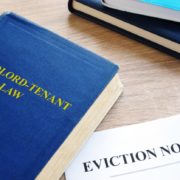
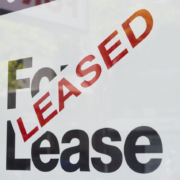





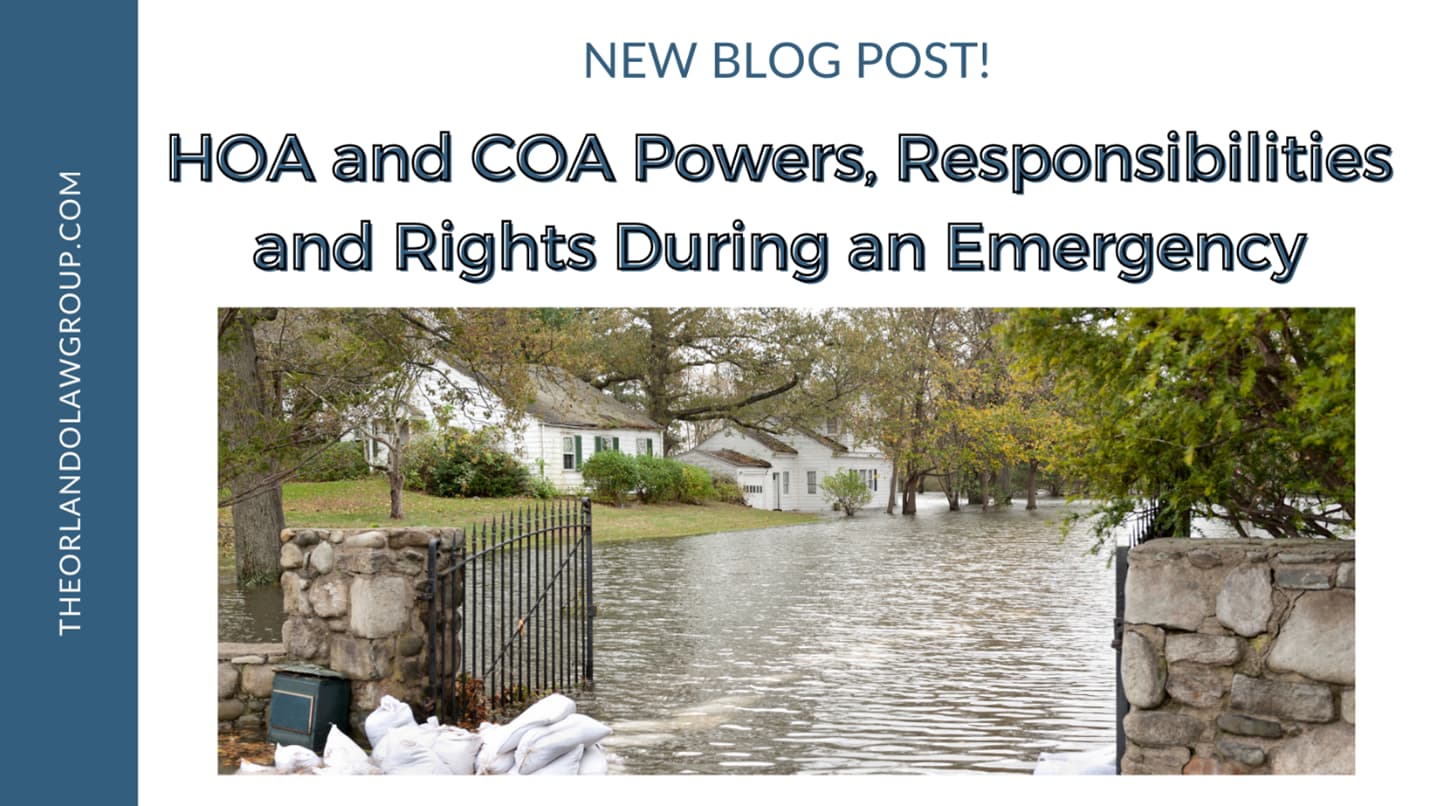 Reserve funds are a key financial asset for your association, and provide a valuable source of funding for costly repairs, replacements and emergencies. Despite the importance of this resource, many Condominium Owners Associations are unsure as to what is needed to fund their reserve. Specifically, this blog will address two (2) concerns:
Reserve funds are a key financial asset for your association, and provide a valuable source of funding for costly repairs, replacements and emergencies. Despite the importance of this resource, many Condominium Owners Associations are unsure as to what is needed to fund their reserve. Specifically, this blog will address two (2) concerns: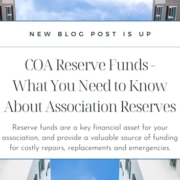
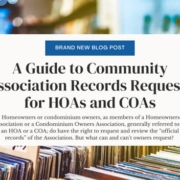
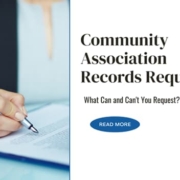
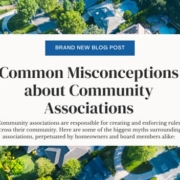
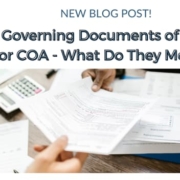
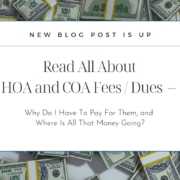
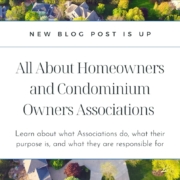
 Overview:
Overview: